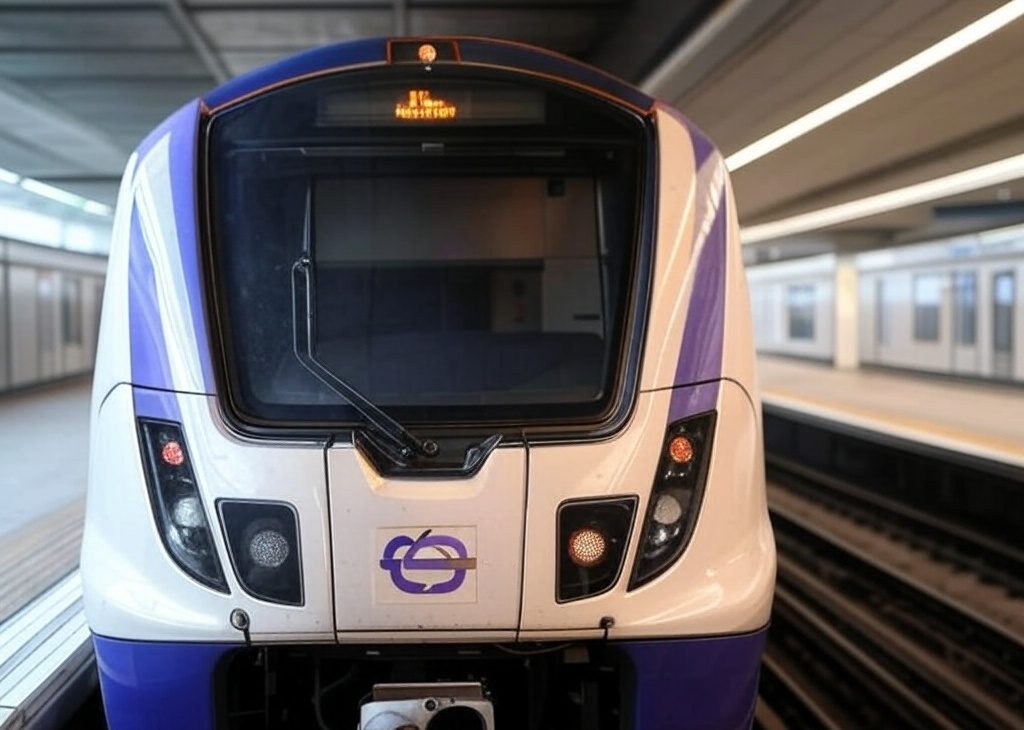Upcoming Disruptions on the Elizabeth Line: Strike Action and Its Implications
The Elizabeth Line, an essential part of London’s public transport system, is facing significant disruptions due to planned strikes this week. As negotiations continue between the union ASLEF and MTR Elizabeth Line regarding pay and working conditions, the potential for widespread delays looms large. Understanding the situation is crucial for commuters who rely on this service, so let’s delve deeper into the details surrounding these strikes and what they mean for travelers.
Current Status of Strike Actions
UPDATE – The two strikes for this week have been suspended pending review of a new offer to the members. The strikes for 8th and 10th March may still go ahead if the pay and conditions offer is not accepted by the union. Severe disruption and delays are expected on the Elizabeth line this week due to strike action on Thursday and Saturday.
The planned strike would result in no services running through the core tunnels or between Abbey Wood and Reading/Heathrow, with a reduced service on the Liverpool Street to Shenfield branch. This disruption is poised to affect thousands of daily passengers who utilize the Elizabeth Line for their commutes.
Details of the Planned Strikes
The first two strikes on the Elizabeth line were originally scheduled for Thursday, February 27th, and Saturday, March 1st. On these strike days, travelers can expect:
- No service between Abbey Wood and Heathrow/Reading
- A significantly reduced service on the Liverpool Street National Rail station to Shenfield route
- No service before 7 am and limited services after 6 pm
- Services will not stop at Maryland, Manor Park, Forest Gate, and Goodmayes stations
While other Transport for London (TfL) services will remain unaffected, commuters may experience busier than normal conditions as many will seek alternative routes, adding to the existing congestion. The situation will be further exacerbated by long-planned engineering work scheduled for Saturday.
The Union’s Perspective
Howard Smith, TfL’s Director of the Elizabeth line, has expressed concerns over the potential impact of the strike on passengers. He stated, “Talks are continuing, and we urge ASLEF to suspend any industrial action whilst these are taking place. We encourage ASLEF and MTR Elizabeth line to continue talking to try and resolve this dispute and avoid impacting our customers with strike action.”
The strikes are being driven by ASLEF drivers who are currently in dispute with MTR Elizabeth Line over a 4.5 percent pay offer that union members have deemed insufficient. The ongoing discussions between the two parties are critical as they work to reach an agreement that satisfies both the drivers and the company.
Management’s Response to the Situation
Mike Bagshaw, the Managing Director for MTR Elizabeth Line, has been actively involved in discussions to resolve the matter. He commented, “Following intensive talks with ASLEF to resolve this dispute and avoid disruptive strike action for our customers, we have put forward an enhanced offer, including a 1.5x rate for rest day working with further improvements to terms and conditions. This builds upon the original offer of a 4.5% pay increase and enhanced terms and conditions, which would have maintained some of the highest salaries in the industry.”
In light of the potential strikes, MTR has collaborated with TfL to implement a robust contingency plan. This plan aims to ensure that customers are well-informed about alternative travel options during the strike, minimizing the impact on those who rely on the Elizabeth line for their daily commute.
What Commuters Should Do
For those planning to travel on the Elizabeth Line during the strike days, it is essential to take precautions. Passengers are encouraged to:
- Check the TfL website or use the TfL Go app for the latest travel information
- Plan their journeys in advance, allowing extra time for travel
- Consider alternative routes or modes of transportation
Staying informed is key to navigating the disruptions effectively. Commuters should also keep abreast of updates regarding the strikes and the ongoing negotiations between ASLEF and MTR, as the situation may evolve rapidly.
Historical Context of Strikes in Public Transport
Strikes in public transport aren’t a new phenomenon, especially in a bustling metropolis like London. The reasons behind these strikes often range from pay disputes to working conditions, safety concerns, and broader labor rights issues. Historically, strikes have drawn attention to workers’ rights and have resulted in negotiations that can lead to improved conditions not only for the striking workers but also for the entire industry.
The Elizabeth Line, inaugurated in 2022, has already faced its share of challenges. Its introduction aimed to ease congestion in London and provide a faster, more efficient way for commuters to travel across the city. However, the ongoing labor disputes highlight the complexities of managing such a vast and essential service.
Conclusion
The current strike situation on the Elizabeth Line is a reminder of the delicate balance between labor rights and public service. As negotiations continue, the hope is that an agreement can be reached that satisfies both the drivers and the management, ultimately benefiting the commuters who depend on this vital transportation link. With the possibility of further strikes on the horizon, staying informed and prepared is essential for all travelers. The outcome of these discussions could set a precedent for future labor relations within the public transport sector, making it a situation worth watching closely.





